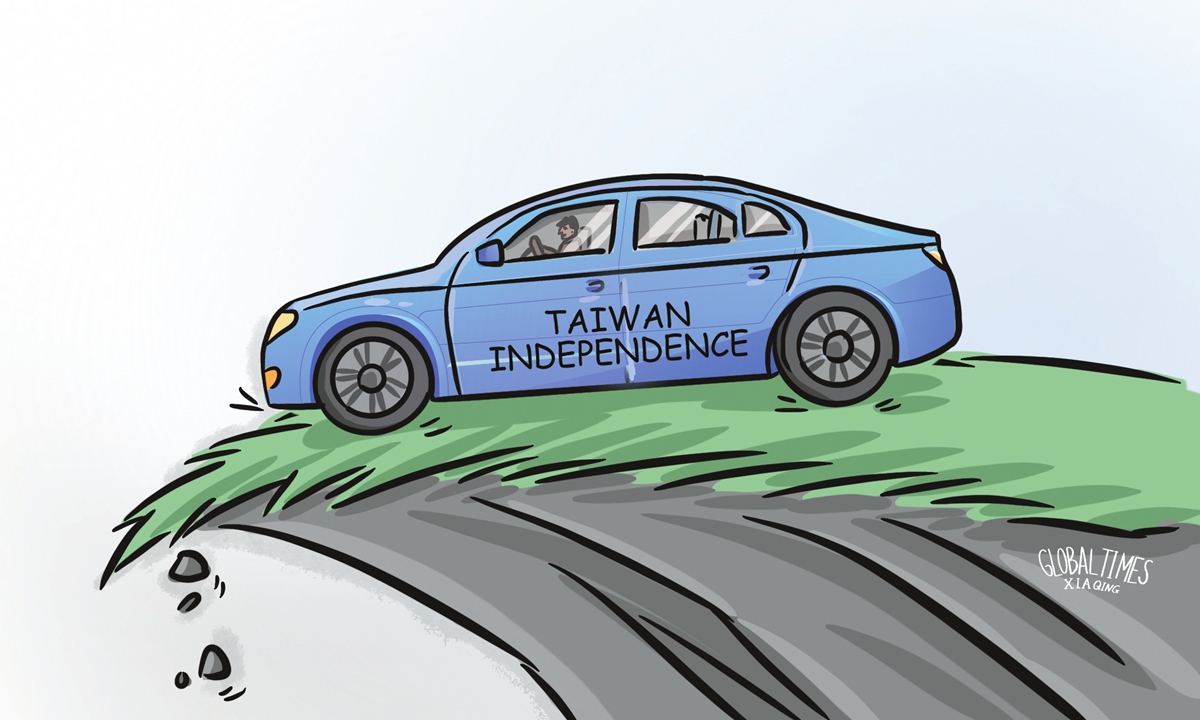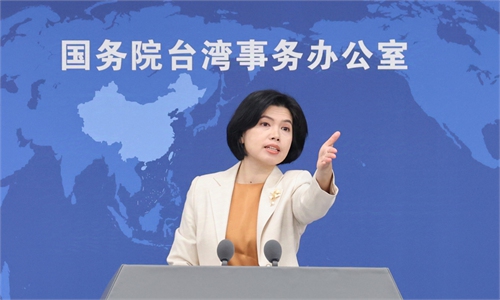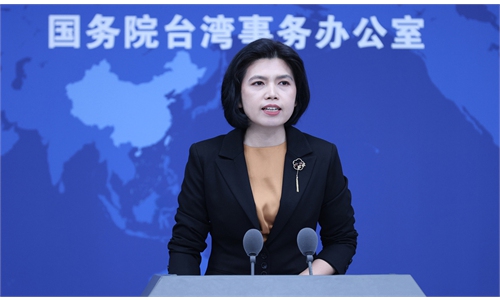
Illustration: Xia Qing/GT
The authorities of the Democratic Progressive Party (DPP) recently claimed they held their first tariff discussions with Washington and expected to build "strong and stable" trade ties. Will this become a reality? In response to a question regarding Taiwan regional leader Lai Ching-te's proposal of zero tariffs for the US and Taiwan companies to increase their investments in the US, Zhu Fenglian, a spokesperson for the Taiwan Affairs Office of the State Council, said on Wednesday that the Lai authorities' proposal of a "large procurement and investment plan" to appease the US is seen as an obsequious "turning of the other cheek." This kind of groveling to the US and selling out Taiwan is deeply contemptible, she added.When Taiwan Semiconductor Manufacturing Company (TSMC) announced a $100 billion investment in the US in March, many believed that Taiwan might receive "favorable treatment" from the US regarding tariffs, which was later proven to be wishful thinking. Clearly, it is impossible for the DPP authorities to bring any economic development and prosperity to the island while disregarding the interests of the Taiwan people and blindly catering to the US.
The US government's "comprehensive plunder" of Taiwan's semiconductor industry underscores its deep anxiety in the competition with Beijing, prompting attempts to make up for its shortcomings in semiconductor manufacturing in the supply chain and to establish a complete semiconductor system as quickly as possible. If the US government succeeds in this plundering behavior, it could uproot the entire semiconductor supply chain in Taiwan, leading to disastrous losses in exports, investments and employment for the island.
The DPP authorities' efforts to "court the US at all costs" have not resulted in any leniency from the White House. The Office of the US Trade Representative has called out trade barriers with the Taiwan island, such as those related to vehicles, US pork and beef and intellectual property protection. It is highly likely that the Lai authorities will continue to make concessions; however, this relentless groveling to the US will severely impact the island's agriculture and traditional manufacturing industries.
The key reason behind the Lai authorities' insistence on "courting the US at all costs" lies in the "Taiwan independence" nature of Lai and the DPP. They believe that support from the US is needed if they want to continue pushing the "Taiwan independence" agenda forward. Additionally, they are deliberately exploiting the strategic rivalry between Beijing and Washington to promote a "complete decoupling" between the two sides of the Straits, seeking to "depart from the Chinese economy for the Global North," with hopes of ultimately realizing their "Taiwan independence dream."
However, this approach will only bring disaster to Taiwan. Rational analyses from within the island have shown that expanding investment in the US and purchases from the US will never be enough to satisfy Washington. More demands are expected, including pressure for the New Taiwan Dollar to appreciate, and Taiwan may be forced to give up the trade surplus it enjoys with the US. For a shallow economy like Taiwan's, which heavily relies on exports for growth, this would be an unbearable burden.
Meanwhile, the security support that the US provides to the Lai authorities will likely be limited to selling expensive military equipment and quietly removing statements like "the US does not support 'Taiwan independence'" from official websites. In contrast, Taiwan society will have to bear the heavy costs of skyrocketing defense spending, squeezed social welfare budgets and a population living in constant fear of war.
In fact, in response to US tariff pressure, there are still rational voices on the island urging the Taiwan authorities to embrace cross-Straits cooperation based on the 1992 Consensus and reduce overdependence on the US market. We sincerely hope that more people in Taiwan will see through the true nature of the collusion between separatist forces and external interference - both of which harm Taiwan. We also hope to see more rational voices and forces countering Lai's reckless governance to prevent Taiwan from truly falling into disaster.
The author is a special research fellow at ZhengQi Think-Tank. opinion@globaltimes.com.cn



